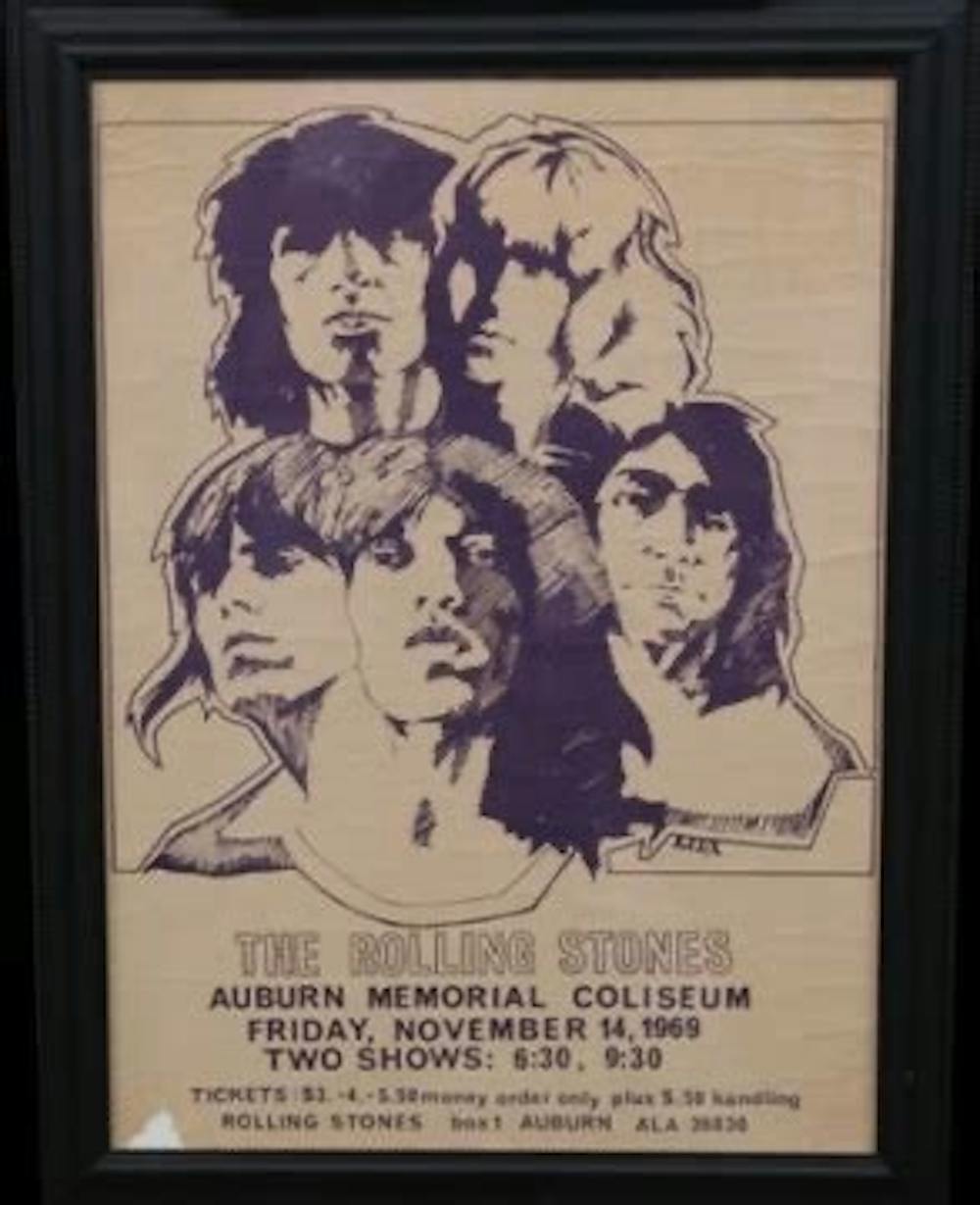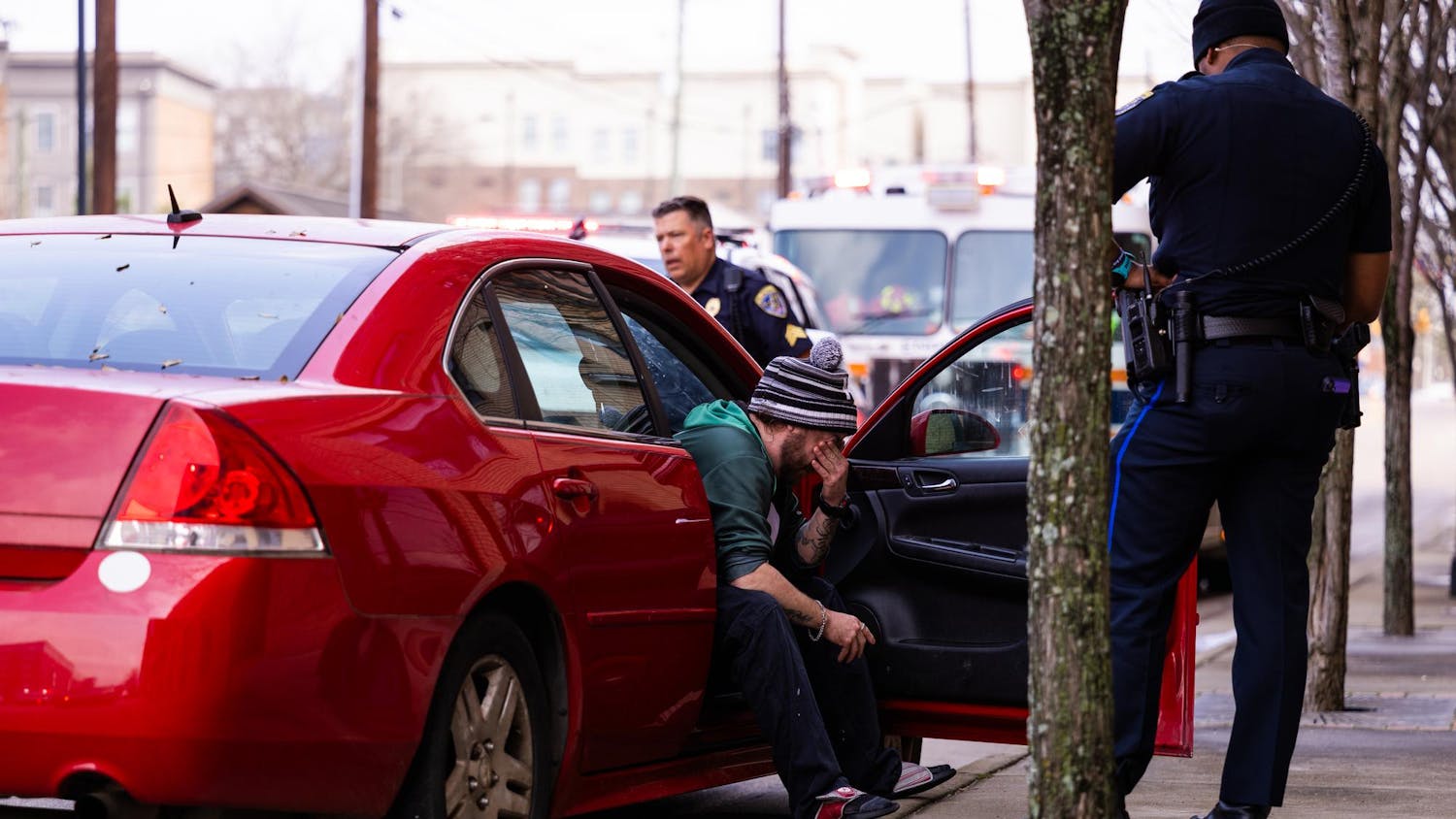A little more than 50 years ago, The Rolling Stones graced the stage of Auburn’s Memorial Coliseum as a part of their American Tour on Nov. 14, 1969.
Rock critic Robert Christgau called it “history’s first mythic rock and roll tour,” with the band performing hits like “Sympathy for the Devil” and “Honky Tonk Women.”
Jette Campbell, who at the time was a graduate student and in charge of entertainment for SGA, is one of the men responsible for bringing the legendary rock group to Auburn.
“David Hill was president of the student body … he got a call from a promoter who was just trying to find some place in the Southeast,” Campbell said. “[Hill] said, ‘what do you think?’ I said, ‘Let’s do it.’”
After devising the plan with Hill, Campbell next approached Katherine Cater, who at the time was dean of student life. Her first question was how they would pay for the band.
The cost of one show was $35,000 — along with the additional money Cater said Campbell would need to pay for stagehands and other necessary workers and equipment.
Campbell said they made plans for The Rolling Stones to perform twice for $37,500.
To sell out the shows, however, he needed to make sure all of the University’s students would be able to attend.
“The girls had a curfew,” he said. “But the curfew was earlier than the second show would have been over. I had to work with Dean Cater to exempt the girls from curfew that night, or at least extend it to a time well after the show.”
With Cater's approval, Campbell announced before the first show that the girls’ curfew had been extended.
In a book published by Michael Landon, Campbell said his announcement invigorated the audience more than The Rolling Stones’ opening act.
“And in that book, he says that I got more applause than Chuck Berry when I announced it,” he said.
With everyone being able to attend, the concert was a tremendous success.
“We made so much money,” Campbell reflected.
Arriving a few hours late, he said the band’s presence was a bit of a culture shock for the small southern town.
“I remember being backstage with them,” he said. “They were all about 5-feet and had little marijuana earrings.”
While The Rolling Stones coming to Auburn was a major milestone for the city, Campbell said the impact was felt outside of the state as well.
“This was a big deal beyond Auburn,” he said. “It was huge in the Southeast. We got with the radio stations. We had posters everywhere. [This] was our first introduction to real marketing.”
In the midst of the Vietnam War, Campbell added that the University was in the middle of a transition. Students were divided between those who supported and those who were against the war.
“In 1968 when we did that blood drive, we did it to protest the protestors,” he said.
This further solidified the idea that music can bring people together, Campbell said. In a tumultuous time, the student body came together as one, even if only for a few hours.
He also said that this event highlights how the student body and the University can work together to bring something that benefits everyone — both on campus and in the community.
“It was a good example of student government students and the administration working together to do something that ended up being very, very significant tin the history of Auburn,” Campbell said.
Looking back, Campbell said he is still in awe that The Rolling Stones arrived on the Plains. It is a moment in life he said he will never forget.
“It’s fascinating, you know, the fact that they actually came to campus,” he said. “It’s just crazy to me.”
Do you like this story? The Plainsman doesn't accept money from tuition or student fees, and we don't charge a subscription fee. But you can donate to support The Plainsman.





